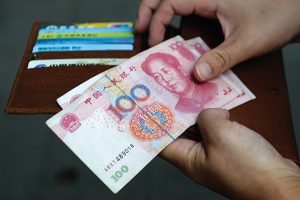One may earn a high salary, but only real estate can build up wealth — for decades, that’s been the Chinese mentality. Real estate accounts for roughly 70% of China’s household wealth, and as much as 30% of its economy. But China Evergrande Group’s debt blowup, with the tumbling home prices and mortgage boycotts that followed, have sent the economy into its deepest spin since the Cultural Revolution. The Chinese are having second thoughts.
Evergrande’s spectacular fall should also serve as a warning to Vietnam. From the love of real estate, to the practice of pre-sales, to developers’ corporate governance, Vietnam shares too many similarities with China for comfort.
Already, the Southeast Asian nation is peppered with developer scandals. In March, the government detained Trinh Van Quyet, chairman of FLC Group, for stock market manipulation. Quyet had directed his relatives to open 450 securities accounts; they traded often, artificially created transaction volume and boosted share prices for his portfolio companies. The next month, Do Anh Dung, chairman of another developer, was arrested for luring investors with false financial information. Dung had raised more than 10 trillion dong ($427 million) from selling privately placed bonds.
These are familiar tactics deployed by Chinese developers. The likes of Evergrande were always looking for ways to borrow, to expand their business just a bit further. To circumvent Beijing’s regulatory scrutiny, developers raised money from private bond sales structured to be off-balance-sheet during the auditing season. Stock prices of their portfolio companies can also soar and plunge mysteriously. That has not ended well. In the past year, 28 of the top 100 developers have defaulted
or asked their creditors for extensions.
But the mother of all scandals was one committed by Alibaba — nothing to do with the Chinese e-commerce giant — but Alibaba Real Estate Corp, based in Ho Chi Minh City.
Vietnam’s Alibaba had sold small empty plots of land, telling thousands of buyers that they were getting a piece of a major development site near the commercial hub. It scammed investors of more than $100 million.
It was a sign of how chaotic and unregulated the real estate market can be — what Vietnam’s Alibaba sold was agricultural land that could not be used for residential housing — but also the reflection of a cultural mindset that prized land above all other assets.
Despite the 2019 Alibaba scandal, the Vietnamese are undeterred. Land is still the category of real-estate investing that has shown the biggest capital gain, followed by landed properties such as villas and townhouses, and then condominiums.
As of the second quarter, landed properties in Ho Chi Minh City were worth $6,913 per square metre, a 48% jump from last year, according to data provided by CBRE, a realtor.
Just like China, pre-sales, where flats are bought long before they are built, dominates Vietnam’s primary residential market. At VinGroup JSC subsidiary Vinhomes JSC, the nation’s largest residential developer, most units are sold immediately after the government clears the paperwork for commercial land use and project construction has broken ground, with buyers required to pay at least 30% of the total purchase price. The rest is collected as construction goes along.
Pre-sales could be mutually beneficial, especially in a rising market like Vietnam’s.
—Bloomberg
 The Gulf Time Newspaper One of the finest business newspapers in the UAE brought to you by our professional writers and editors.
The Gulf Time Newspaper One of the finest business newspapers in the UAE brought to you by our professional writers and editors.
